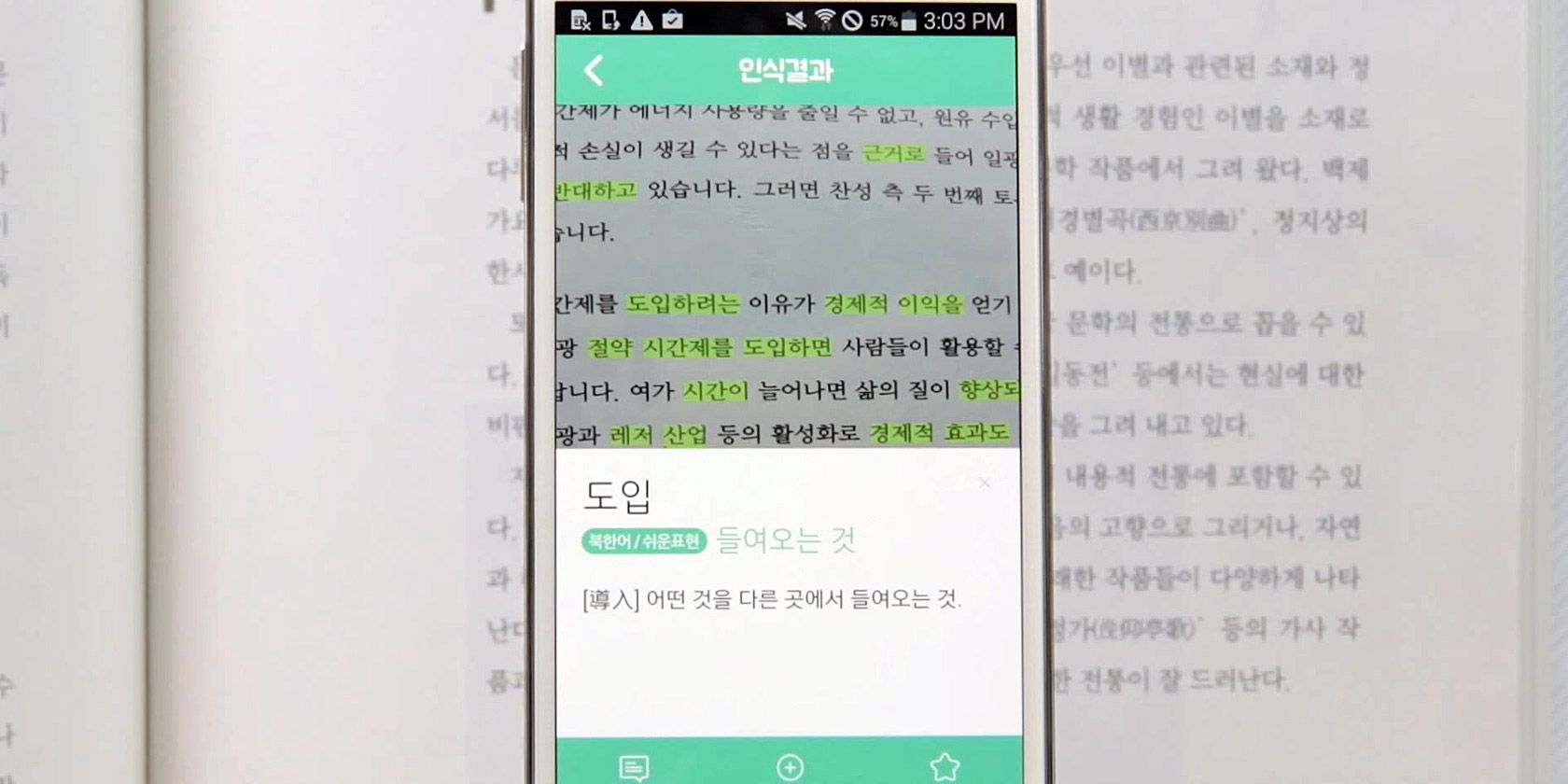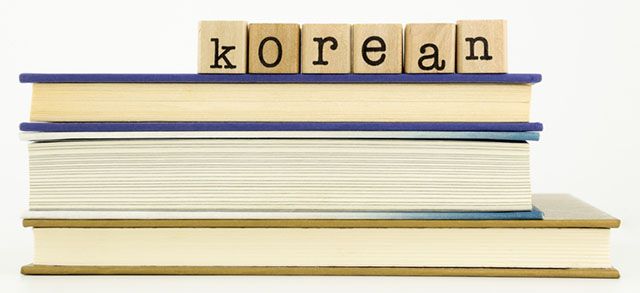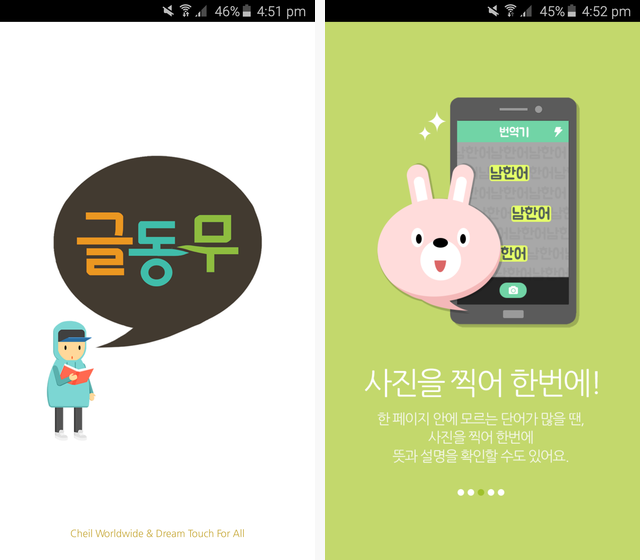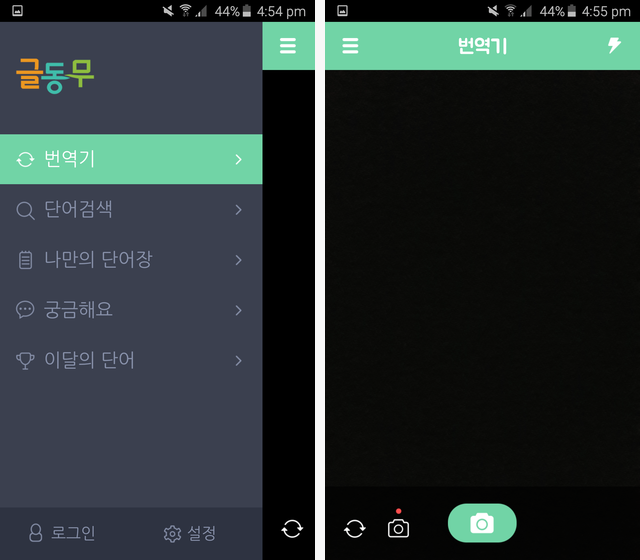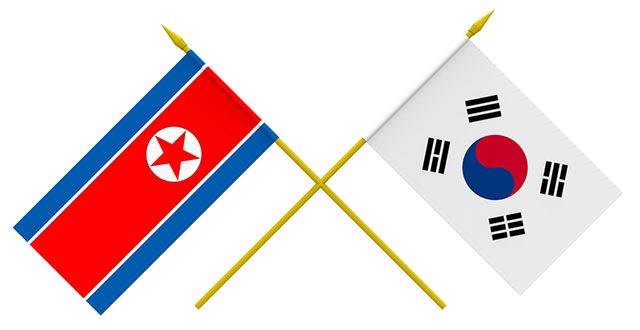You escape the tyrannical dictatorship you were born and raised under. You make it to a safe, democratic country where you are free to speak your mind. You've made it.
But then you realize that you can't understand everyone, and they have trouble understanding you. At school, you don't understand half of what is written in the textbooks. You fall behind, and you're stuck in a cycle of poverty in your new country.
That's what's happening to thousands of North Korean defectors living in South Korea right now. One organization, called Dream Touch For All, is looking to helps the less fortunate in Korea. One of their tools for doing that is an app called the South Korean-North Korean Translator app, also know as UniVoca.
What Is the Problem?
Language is constantly evolving and changing. The English that I'm writing this article in would be completely incomprehensible to someone speaking English just 1,000 years ago, and even English from 500 years ago is difficult to understand (try reading Shakespeare for a demonstration).
This is a completely normal phenomenon that happens across all languages due to two main factors: natural processes and cultural contact. A natural process is, for example, the shortening of "Did you eat yet?" into "Jeetyet?" In context, you would probably understand if I asked you "Jeetyet?" Eventually, that could evolve into something where the original form is no longer recognizable.
For instance, the word "Lord" probably makes you think of an important person of nobility, or perhaps of a god. The Modern English definition is, after all, "someone or something having power, authority, or influence; a master or ruler." But, the word "Lord" is actually a shortened version of the Old English word "Hlafweard", which meant "the one who guards the bread". Doesn't sound like a very noble or god-like position, eh?
Natural processes worked "Hlafweard" down into "Lord" – because who has time to say "Hlafweard"? – and we began to associate it with different things over time.
But that's all history that occurred long before our globalized, Internet-driven world. Things now move much more quickly. Imagine if the US and the UK were to cut off all ties with each other. Our dialects already have enough differences that it wouldn't take long for new American slang or phrases to arise that would be unrecognizable to British speakers (and vice-versa).
Even within the US, Southern California already has a lot of Spanish influence, Louisiana has a lot of French influence, and the Midwest has a lot of Scandinavian influence – if we were to be isolated from one another, it wouldn't take long for our dialects to diverge even further.
This is what has happened in Korea. The North and South have been divided for 70 years – since the end of World War 2 in 1945 – and that's plenty of time for the single Korean language to split into two distinct dialects. This is exacerbated by the fact that South Korea has seen heavy American influence, leading to a lot of English vocabulary in the South Korean language.
What's wrong with having two largely different dialects? Well, considering the limited amount of contact between South Koreans and North Koreans, getting a translation isn't as easy as just googling it – something you can do for American or British English. So if you're a North Korean who has escaped and made it to South Korea, how do you understand the language?
Until UniVoca was released, it was a struggle for North Korean defectors. Not knowing the language of the country you're living in is undoubtedly hard, and it can make people feel embarrassed or shameful that they don't understand.
Dream Touch For All says that North Korean students could understand less than 50% of the words in their South Korean textbooks. The Japan Times reported that experts estimate one third of the words spoken on the streets of Seoul would not be understandable to North Koreans, and up to two thirds in a business setting. This severely limits North Korean defectors chances of succeeding in school or being able to get a job.
So thanks to Cheil Worldwide (an advertising division under Samsung) and Dream Touch For All, North Korean defectors now have a way of translating South Korean words in North Korean.
UniVoca: The App That Could Help Thousands
Above are screenshots from the UniVoca app, which shows you the different ways of using the app. The main use is scanning words using your smartphone's built-in camera, which the app can identify and translate instantly, much like Google Translate does for a limited number of languages (thanks to their purchase of Word Lens).
The interface itself is modern, fluid, and easy to use, though I can't say much for its translation accuracy, given that I don't speak South or North Korean. Still, this is no weak attempt – it's definitely a well-designed app.
An App For Reunification?
The reunification of the Koreas is a lofty goal, no doubt, but Dream Touch For All makes a solid point: a language barrier is one more obstacle on the path to reunification.
Obviously, no single app is going to reunify the Koreas. North Korea has isolated themselves so thoroughly from the world that they've developed their own institutions, including much of their own technology, separate from the rest of the world. Most North Koreans have never been on the Internet as we know it.
North Korea has been in the news a lot lately, from the Sony hack to numerous documentaries detailing the hardships that North Koreans go through everyday. For many, seeing the two Koreas united seems like nothing more than a pipe dream.
But, if it is ever going to happen, North and South Koreans do need a way to communicate. Right now, UniVoca offers a way for North Koreans to learn how.
More Times Our Technology Has Done Good
Modern technology, like all things, has good and bad in it. It can fuel conspiracy theories, give a platform to the scientifically illiterate like the Food Babe, and allow for the violent harassment of women. But we can all fight back against that and insist on using the incredible power of the Internet and our smartphones for good.
A meme can save a father's life, and the world can come together behind the DancingMan to fight against bullying and body-shaming. And now, an app can potentially change the lives of thousands of North Korean defectors.
Can you think of any other times technology has done good in the world? Could you recommend other potentially life-changing apps? Let us know in the comments!
Image Credits: Flags of North Korea and South Korea, The confrontation between North Korea and South Korea, Korean word on wood stamps / Shutterstock.

